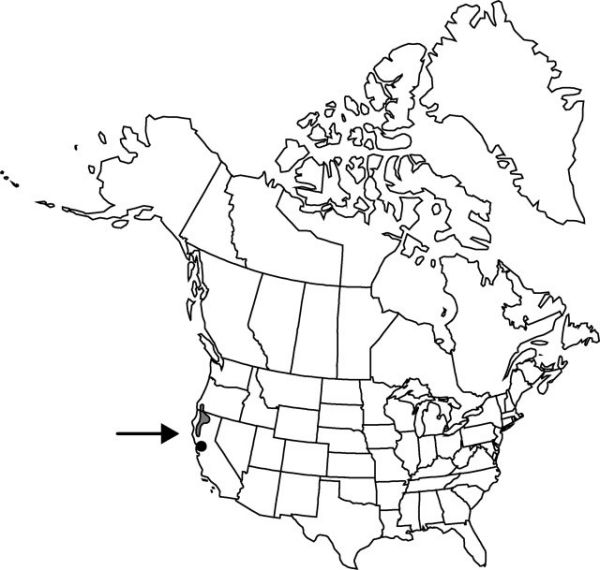Difference between revisions of "Allium bolanderi"
Proc. Amer. Acad. Arts 14: 229. 1879.
FNA>Volume Importer |
FNA>Volume Importer |
||
| Line 21: | Line 21: | ||
|distribution=Calif.;Oreg. | |distribution=Calif.;Oreg. | ||
|discussion=<p>Varieties 2 (2 in the flora).</p><!-- | |discussion=<p>Varieties 2 (2 in the flora).</p><!-- | ||
| − | --><p>The varieties of Allium bolanderi are extremely difficult to distinguish in the absence of bulb material. Care must be taken to obtain good bulb material whenever collecting Allium, but it is extremely critical in this species.</p> | + | --><p>The varieties of <i>Allium bolanderi</i> are extremely difficult to distinguish in the absence of bulb material. Care must be taken to obtain good bulb material whenever collecting <i>Allium</i>, but it is extremely critical in this species.</p> |
|tables= | |tables= | ||
|references= | |references= | ||
| Line 56: | Line 56: | ||
|publication year=1879 | |publication year=1879 | ||
|special status= | |special status= | ||
| − | |source xml=https://jpend@bitbucket.org/aafc-mbb/fna-data-curation.git/src/ | + | |source xml=https://jpend@bitbucket.org/aafc-mbb/fna-data-curation.git/src/8f726806613d60c220dc4493de13607dd3150896/coarse_grained_fna_xml/V26/V26_475.xml |
|genus=Allium | |genus=Allium | ||
|species=Allium bolanderi | |species=Allium bolanderi | ||
Revision as of 16:44, 18 September 2019
Bulbs 1–6+, not basally clustered, replaced annually by new bulbs borne terminally on rhizomes; rhizomes 1–3, inconspicuous, slender, less than 2 cm including renewal bulb; parent bulbs disappearing by anthesis except for still-functional roots and bulb coat, oblique-ovoid to ± oblong, 0.7–1.4 × 0.5–1.2 cm; outer coats not enclosing bulbs, brown to gray-brown, ± obscurely reticulate, membranous, reticulum delicate, cells transversely elongate, V-shaped or ± wavy, forming obscure herringbone pattern, without fibers; inner coats white, cells obscure, quadrate to ± rectangular, often contorted. Leaves persistent, withering from tip at anthesis, 2–3, basally sheathing, sheaths not extending much above soil surface; blade solid, subterete to ± channeled, 9–30 cm × 1–2 mm, margins entire. Scape persistent, solitary, erect, solid, terete, 10–35 cm × 1–3 mm. Umbel persistent, erect, compact to loose, 10–20-flowered, hemispheric, bulbils unknown; spathe bracts persistent, 2, 4–6-veined, lanceolate to lance-ovate, ± equal, apex acuminate. Flowers conic to campanulate, 7–14 mm; tepals erect, reddish purple, rarely white, narrowly lanceolate to lance-ovate, ± equal, becoming rigid and carinate in fruit, margins finely denticulate (inner tepal more prominently so), apex acute to obtuse, becoming involute at tip and appearing acuminate; stamens included; anthers yellow; pollen yellow; ovary crested; processes 3, central, 2-lobed, minute, margins entire; style linear, equaling stamens; stigma capitate, obscurely 3-lobed, scarcely thickened; pedicel 10–20 mm. Seed coat dull; cells minutely roughened.
Distribution

Calif., Oreg.
Discussion
Varieties 2 (2 in the flora).
The varieties of Allium bolanderi are extremely difficult to distinguish in the absence of bulb material. Care must be taken to obtain good bulb material whenever collecting Allium, but it is extremely critical in this species.
Selected References
None.
Key
| 1 | Bulbs oblique-ovoid; bulb coat breaking with serrate edges; flowers 7–12 mm; tepals lance-ovate. | Allium bolanderi var. bolanderi |
| 1 | Bulbs oblique-oblong, irregular, suggesting small tubers; bulb coat breaking with irregular edge; flowers 9–14 mm; tepals narrowly lanceolate. | Allium bolanderi var. mirabile |